MATERNITY AND PHOTOGRAPHY
Carmen Winant. Our birth. MOMA. New York, United States.
MOTHERHOOD AND PHOTOGRAPHY
PROGRAMME IN PROGRESS
ONLINE WORKSHOP
RECORDED, TRANSLATED AND SUBTITLED SESSIONS
LATER LIVE DIALOGUE WITH SEVERAL OF THE GUESTS
DATE TO BE CONFIRMED
Due to COVID conditions in the different countries of the workshop participants, the starting date had to be adapted to the circumstances of each case.
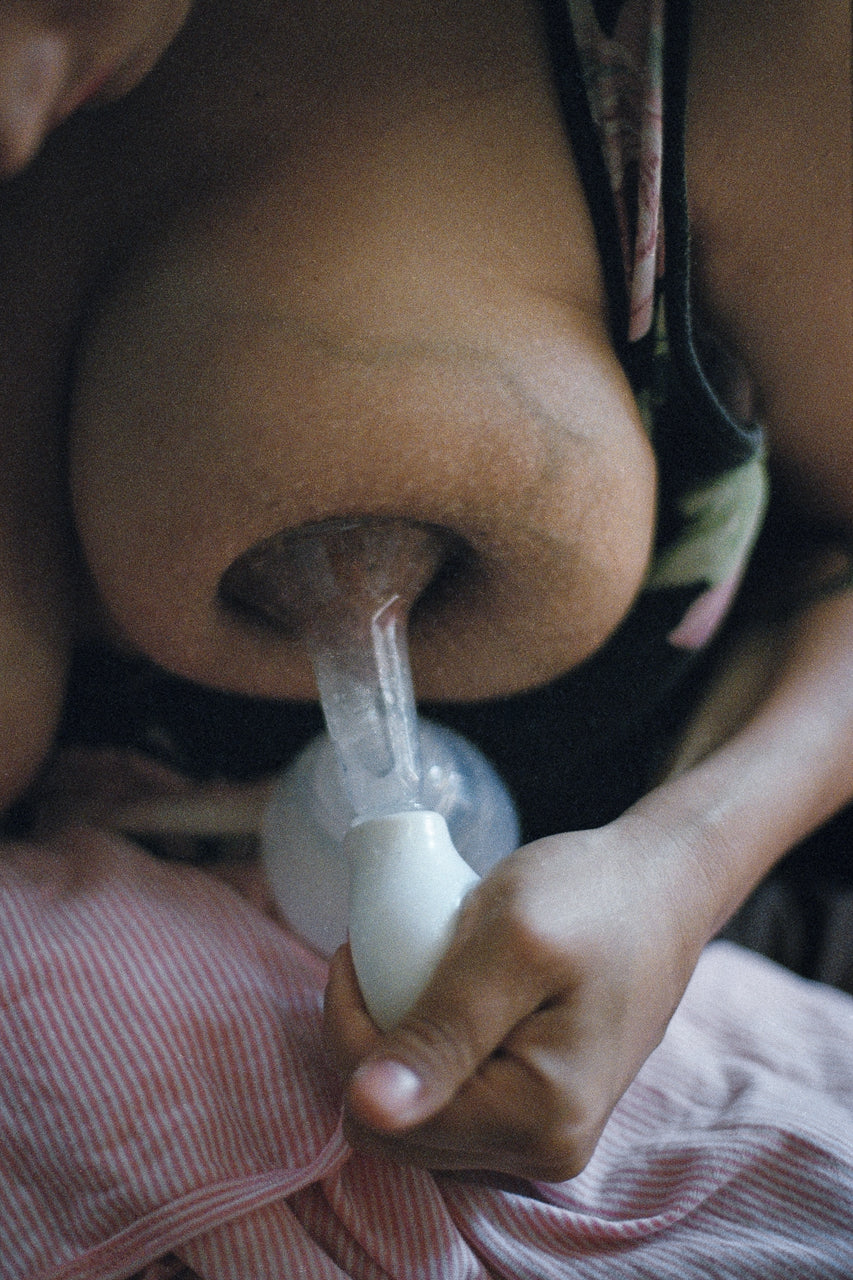
Paula López Droguett
ANA CASAS BRODA
Coordinator
Motherhood is and has always been a complex subject. It is surprising how today it continues to be a subject of enormous controversy that awakens unexpected reactions, as if its origins lie somewhere deep in the unconscious, which, as soon as it is touched, emerges with vehemence.
Daily bombarded with images of nudity, most often nudity and violence, a breastfeeding mother remains taboo in most parts of the world, to the point of legal reprisals in some countries. Something seemed to be transforming when the baby boom emerged around the year 2000, famous actresses defying the biological clock and appearing naked on magazine covers, pregnant and beautiful after their 40's, thanks to the new world of the infinite promise of assisted fertility. It was a time when TV channels continuously broadcast programmes where we could accompany mothers through their pregnancies, home births, hospital births, caesarean sections, and even experience the uncertainty of distressing medical complications and their outcomes.
And at the same time, we experience an increasingly strong rejection of the image of the body, of the physical contact between mother and child, and a growing denial of the importance of motherhood as an experience in which the body is at the centre of experience, of pain and joy, of affection and depression.
In different cultures, motherhood is experienced in very different ways. The gap between conceiving motherhood as an intimate subject that leaves most mothers and fathers isolated in the complexity of their experience, and the social movements that champion different positions on motherhood, appropriating it as a slogan of struggle, leaves a space where a void opens up for the need of so many mothers and fathers to explore, name and experience the subject from their own places that allow the singularity of the experience while opening up new territories for dialogue and collaboration around this crucial moment in our lives.
In every place, in every person, in all times, motherhood is an experience that marks us as individuals, defines us, builds and rebuilds us, both as mothers and fathers, as daughters and sons. Life before and after having children will never be the same, as in any radical experience, it is an intense and vital experience.
However, in most cases it is still not considered a "theme" to be explored in the field of art without being framed in theoretical or ideological discourse. For some, a "natural subject", "intimate", for others uncomfortable and even offensive, maternity continues to be a territory to investigate, to immerse ourselves in the intensity of the experience, in the preconceptions and prejudices that accompany it, the power of the unconscious of our own childhood that is reactive and comforting for some and painful for others, but almost always enigmatic and unnamable.
These sessions seek to discuss topics ranging from the conception of fertility, the pain of infertility, the mother as an idealised image throughout history, the feminist movements that have sought and continue to open paths towards other ways of living and thinking about motherhood, the movements to delegitimise women who do not wish to procreate, to the new generations who do not identify with any of these movements and try to find their own way of living this experience and give it a voice.
This programme brings together the gaze and work of different artists, curators, writers, poets, researchers, performers, from different parts of the world, cultures and generations who share their experiences and enquiries on the theme of motherhood and seeks to open up the subject to new perspectives, collaborations and dialogues.
In the first stage the programme will consist of pre-recorded sessions, translated and subtitled in English and Spanish, followed by several dialogue forums for smaller groups.
Hollie McNisch. Embarrased
PARTICIPANTS
ANNA FOX - Photographer, teacher and curator (UK)
CARMEN WINANT - Artist and writer (United States)
CECILIA MONROY - Filmmaker, photographer (San Cristóbal de las Casas, Mexico)
COLIN PANTALL- Writer and photographer (UK / USA)
GABRIELA RIVERA LUCERO - Artist, performer, activist (Chile)
DIANA KARKLIN - Photographer, artist (Russia, Germany, Mexico)
HOLLIE MCNISH - Artist, poet (Scotland, United Kingdom)
HEBA KHALIFA - Artist, photographer (Egypt)
KRISTY GUEVARA - FLANAGAN - Filmmaker (United States)
KAREN IRVINE- Curator (United States)
MAGALI LARA - Visual artist, manager and teacher (Mexico)
MARGARITA MARTÍNEZ PÉREZ- Linguist, anthropologist and artist (Chiapas, Mexico)
PATRICIA MASSÉ ZENDEJAS - Researcher (Mexico)
PAULA LÓPEZ DROGUETT- Artist (Chile)
SANDRA GONZÁLEZ SANTOS - Researcher and teacher (Mexico)
SARAH SUDHOFF - Artist (United States)
SUSAN BRIGHT - Curator and writer (UK)
SVEA JOSEPHY - Photographer, teacher (South Africa)
YANXIAN ZHAO - Artist (China)
YINING HE - Curator and writer (China)
YISSEL ARCE PADRÓN - Researcher (Cuba/Mexico)
+ OTHERS TO BE ADDED SOON
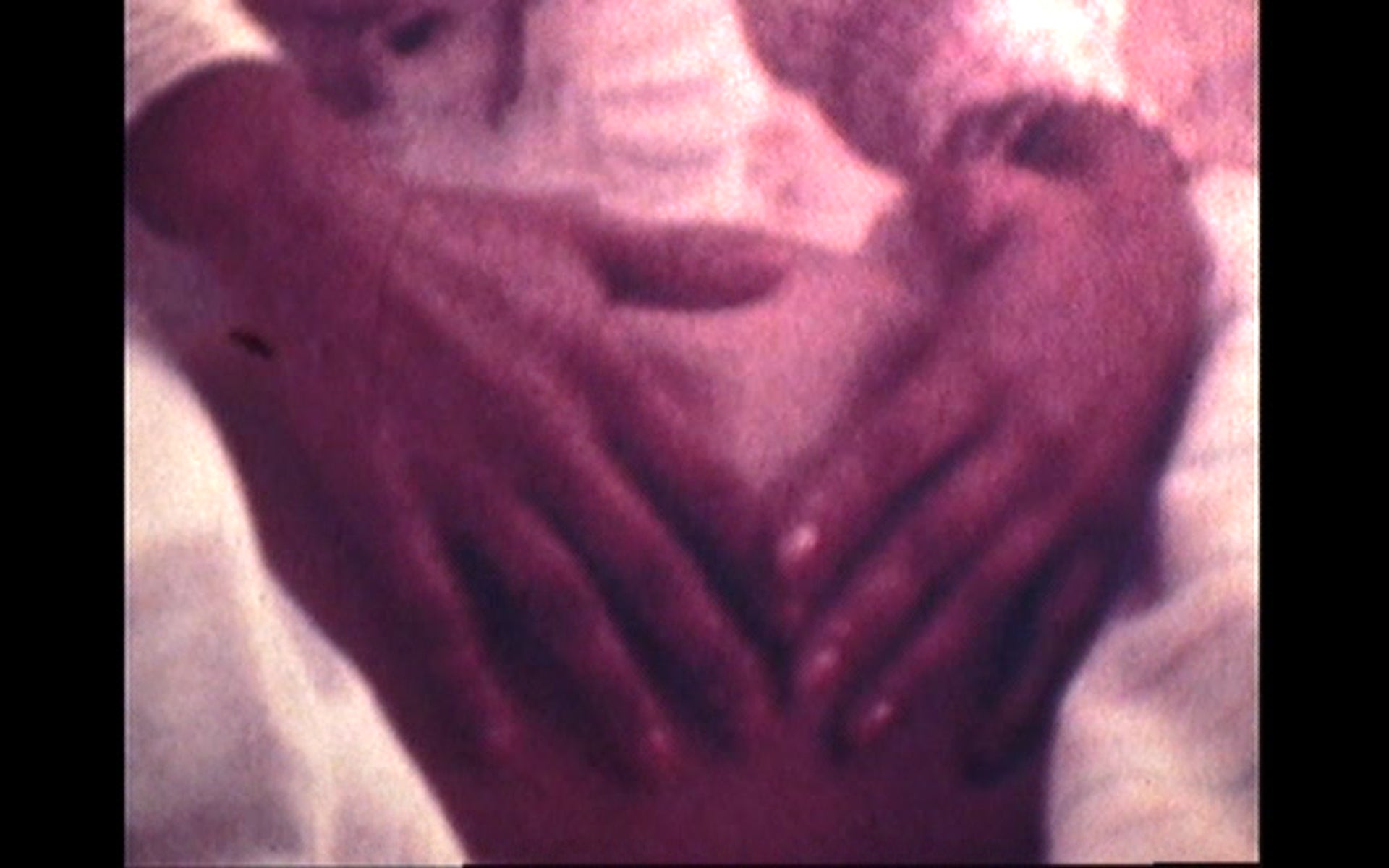
Use overlay text to give your customers insight into your brand. Select imagery and text that relates to your style and story.
Hometruths. Curated by Susan Bright Photographers Gallery, London. United Kingdom.
SOME SESSIONS
PROGRAMME IN PROGRESS
KAREN CORDERO
FEMINIST MOTHERHOOD
KAREN IRVINE
REPRODUCTION AGENCY: Health, Fertility
Reproductive: Health, Fertility, Agency explores the psychological, physical and emotional realities that women encounter in the years before, during and after fertility. The exhibition features eight artists who consider a range of themes including birth, miscarriage, pleasure, lack of access to abortion, trauma and loss of fertility.
YISSEL ARCE PADRÓN
DISPLACED MOTHERHOOD:
critical narratives and visual epistemologies.
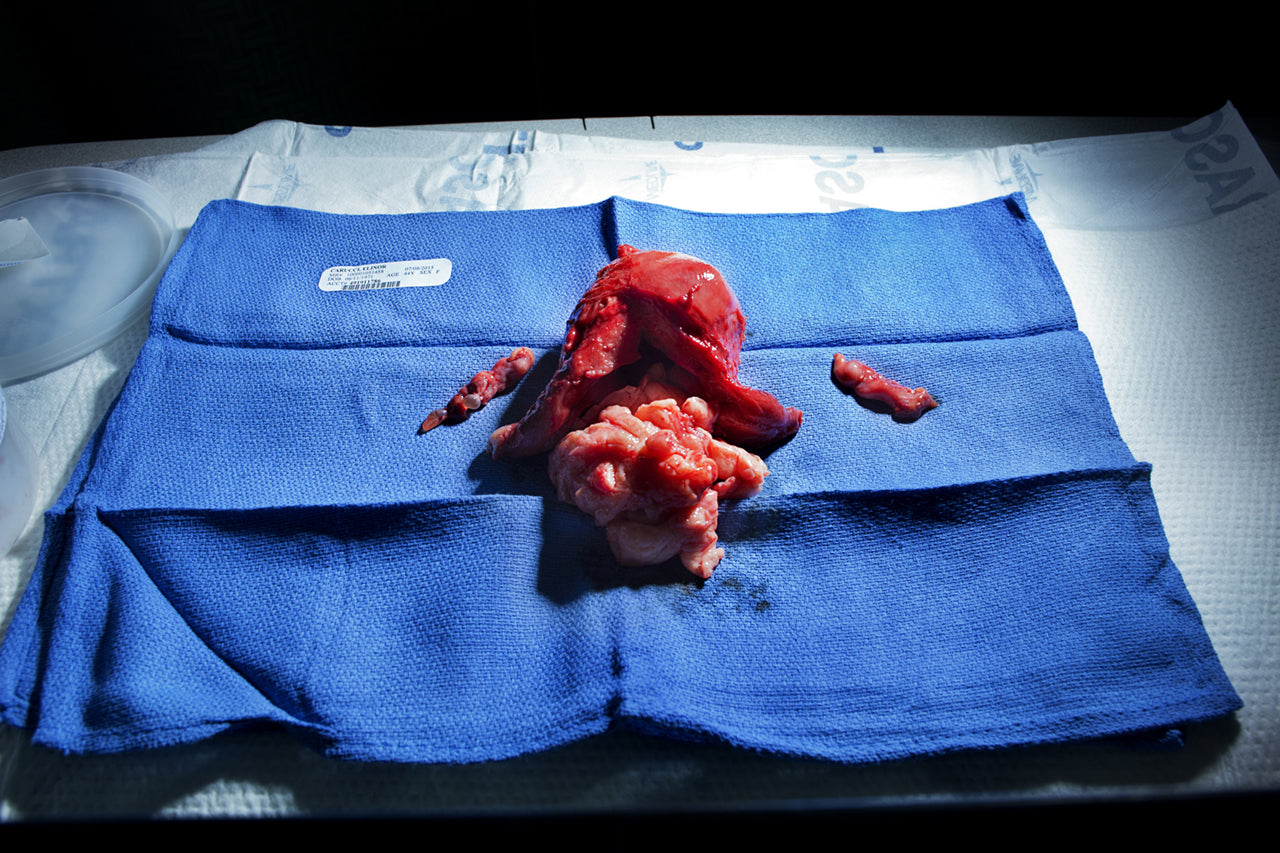
Elinor Carucci, My womb
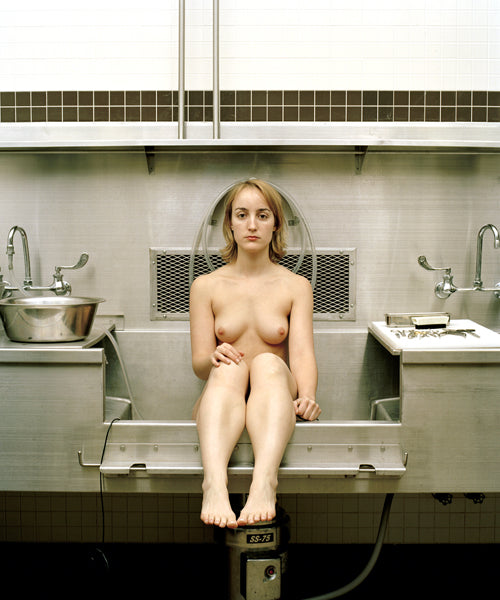
Sarah Sudhoff
SARAH SUDHOFF
SUPPLY AND DEMAND
Over the past fifteen years my work has consistently intertwined issues of gender, science and personal experience. I am fascinated by subjects that seem at first glance commonplace and ordinary. However, through photography - both staged and found - I highlight our lack of understanding of such a familiar topic.The politics of breastfeeding has recently become a contentious issue, fuelling strong emotions as well as a plethora of new scientific studies and reports in the press. In early 2013, I created a video documenting a private performance with frozen breast milk, entitled Surrender. My work grew out of my inability to produce enough milk for my then young son. Milk serves as a theme and metaphor for the feelings of loss and failure that I and so many other mothers have experienced. My work, then, explores a political question through the lens of deep bodily experience.The intersection of abstract, statistical research and affective presentation underpins the way in which breastfeeding is highly medicalised and yet undeniably personal in contemporary American culture.
REPOSITORY
I examine the body within a medical context by exploring through large-scale photography and video four main themes: pathological waste; containment of the body and its parts; fragmentation and violence against the body; relationship of the subject to a specific environment. After my surgery in 2004 for cervical cancer, I started photographing and performing in hospitals, morgues, medical museums and in my doctors' offices. Through self-portraiture and self-realisation, private rituals are revealed to the public only through documentation. The repetition of spaces, procedures and a central character highlights and reshapes our thoughts about medical environments, the treatment of our bodies in these spaces, the role we have in protecting our bodies, and the role we play in the protection of our bodies.
Use overlay text to give your customers insight into your brand. Select imagery and text that relates to your style and story.
Carmen Winant. Our birth. MOMA. New York, United States.
CARMEN WINANT
OUR BIRTH
This session will revisit MoMA's 2018 installation and book, My Birth, two years after they were produced. Winant will show personal photographs of his own birth, made by his partner Luke Stettner, as well as art historical references that informed his thinking. The hour-long talk will be a meditation on notions of mutuality; how might we understand birth as an experience of collectivity?
MARGARITA MARTÍNEZ PÉREZ
MINORITY LANGUAGES, CULTURAL PRACTICES AND ARTS IN RESISTANCE
Of Tsotsil roots, originally from Huixtán, Chiapas, Mexico.
The topic of the conditions of being a woman and the ontological relations of being a mother or not being a mother in the Mayan Tsotsil context is addressed. What is it to be a Tsotsil woman? What happens when a Tsotsil woman decides not to be a mother or is prevented by nature from being a mother? How is she seen in the Tsotsil context? It is therefore extremely interesting to discuss the processes of socialisation that a Tsotsil girl, young woman, woman goes through and the discourses anchored in the culture that are reproduced for the maintenance or transformation of an idea of what it is to be a woman and her value as a woman in this Mayan cultural context.
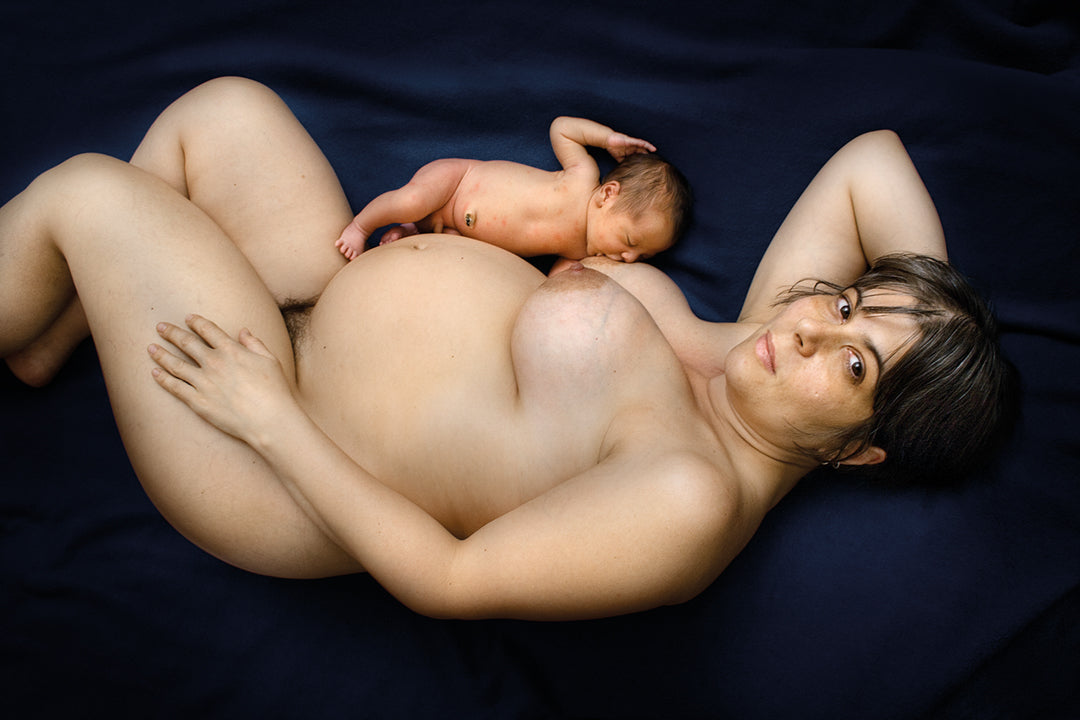
Ana Casas Broda. From the Kinderwunsch project
Use overlay text to give your customers insight into your brand. Select imagery and text that relates to your style and story.
Hometruths. Curated by Susan Bright Photographers Gallery, London. United Kingdom.
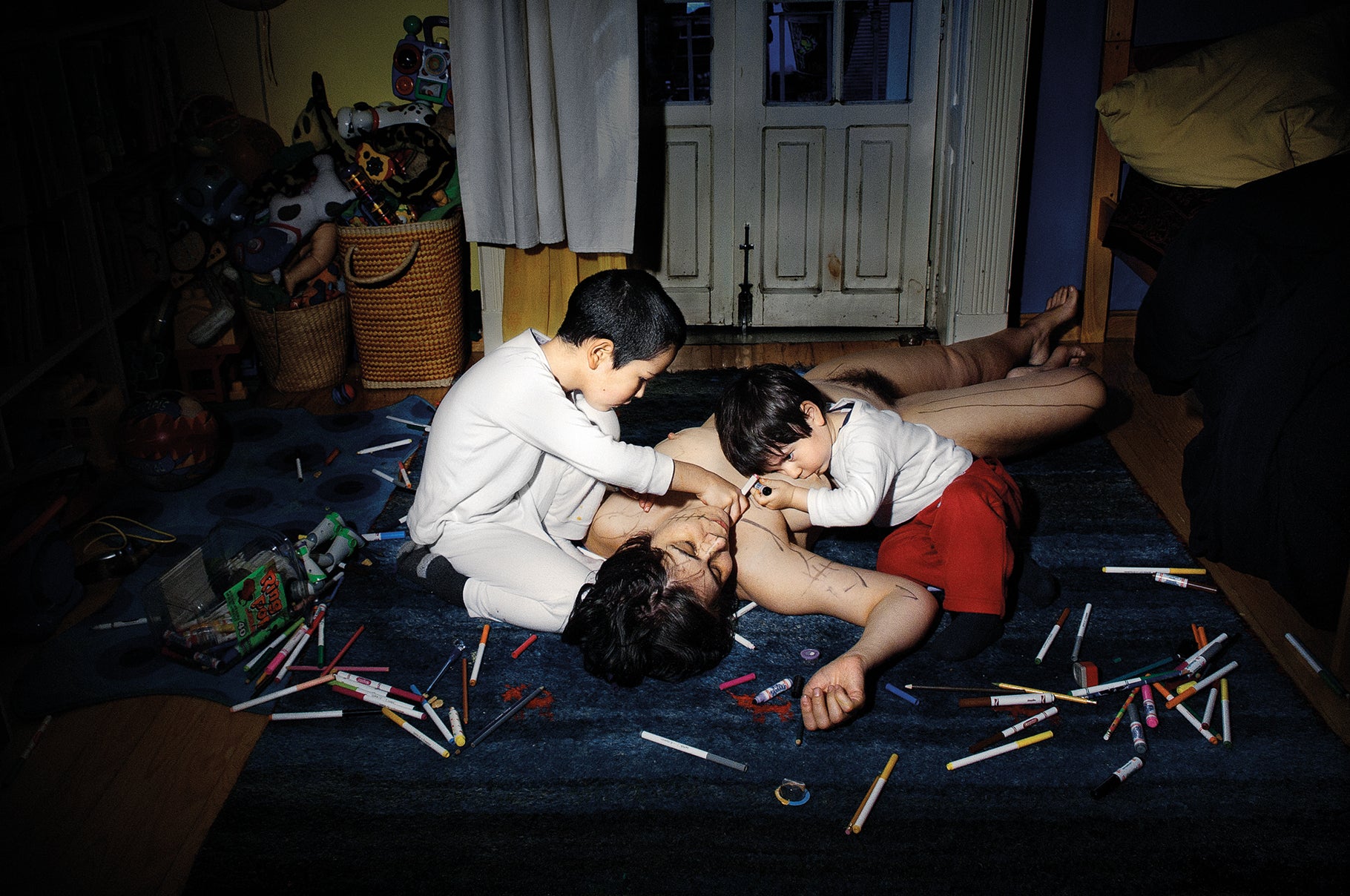
Ana Casas Broda. From the Kinderwunsch project
SUSAN BRIGHT
HOME TRUTHS
Focusing on the work of twelve international artists, Home Truths challenges stereotypical or sentimental views of motherhood conveyed by traditional representations, and explores how photography can be used to address the changing conditions of power, gender, domesticity, the maternal body and female identity. The work presented is highly personal, often documentary in nature, and focuses on the individual subject. This conference investigates contemporary "maternal ambivalence", which I identify as a response to social norms, expectations and cultural conditions of motherhood. I use the framework of the 'life narrative' to examine maternal ambivalence by contextualising the artists featured in Home Truths within representations of motherhood in the wider photographic culture of motherhood.The lecture focuses on the emergence and contextualisation of the curated project and takes an expanded view of the possibilities of curation. I examine how Domestic Truths functioned in relation to institutions, publics, aesthetics and the exhibition of culture through the conditions (institutional, economic, aesthetic and theoretical) in which it existed. Crucially, I ask how photography is experienced in Domestic Truths. It updates the research by looking at recent work by artists dealing with motherhood and by considering recent critiques in the area of the maternal.
DIANA KARKLIN
UNDO MOTHERHOOD
This session will review my project on regretful motherhood which is due to be published as a photobook in September 2021 and place it within the framework of existing literature and research on this topic. The UNDO MOTHERHOOD project explores the reasons why a significant number of women in the world today regret becoming mothers and points the finger at the patriarchal institution of motherhood that from a very young age pushes women to have children promising them the ultimate fulfilment and happiness, and then abandons them, very often at the cost of their own lives. The women in the project love their children and are excellent mothers by social standards, yet they hate the oppressive role of the mother who robbed them of their very existence and suffer it in silence as the worst mistake they have ever made. This project denounces the hypocrisy and injustice of the society that is based on discrimination against women and uses the myth of happy motherhood to keep women under control in the subordinate role.
Use overlay text to give your customers insight into your brand. Select imagery and text that relates to your style and story.
COLIN PANTALL
THE MENTAL LOAD OF MOTHER HOOD
The Mental Burden of Motherhood is part of an interconnected series that examines the overlap between childhood, domestic space and the visible physical and mental burdens of motherhood.
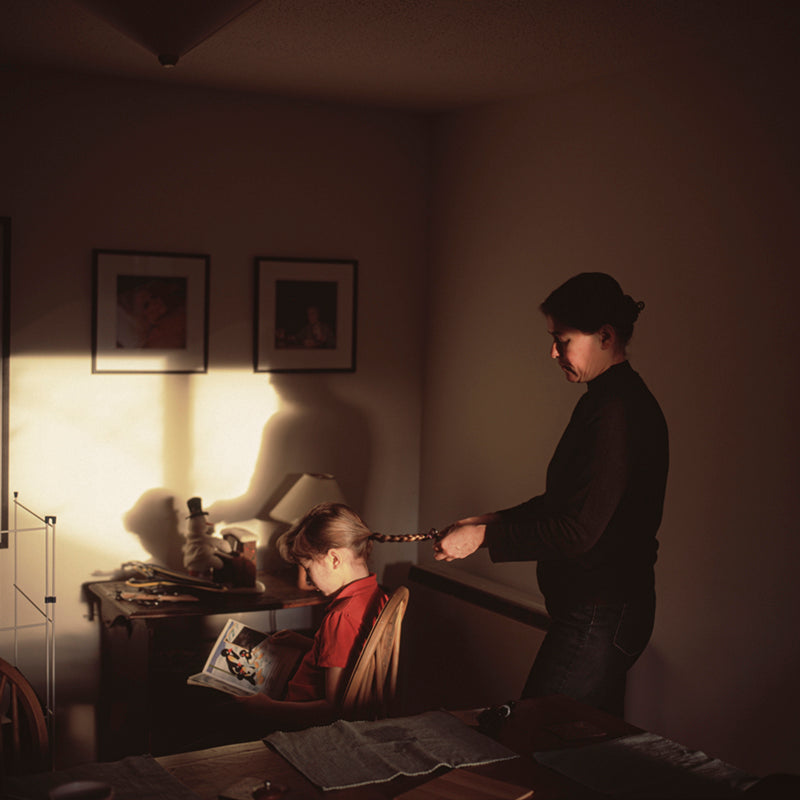
Colin Pantall
Diana Karklin. Undo Motherhood
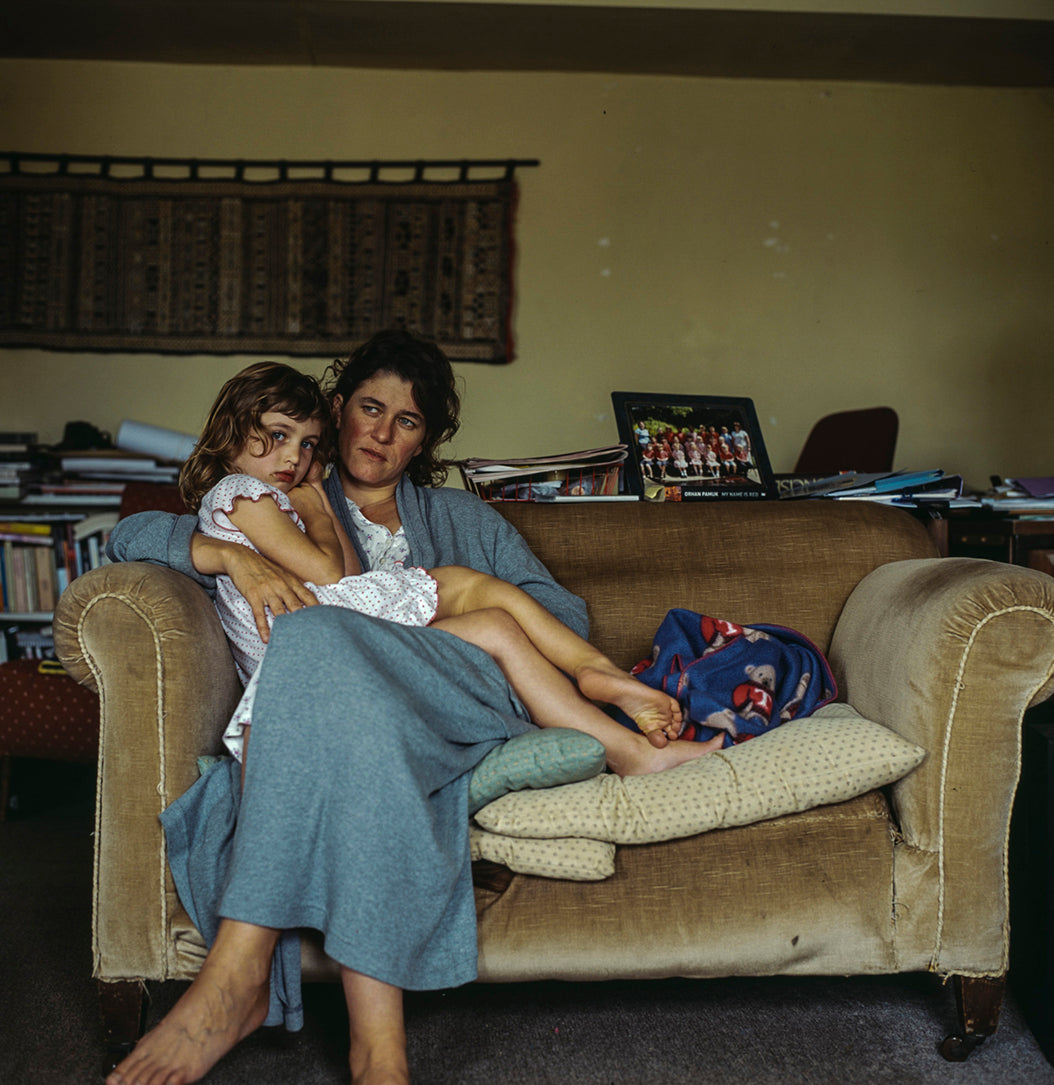
Colin Pantall
SANDRA GONZÁLEZ SANTOS
(ASSISTED) REPRODUCTION FROM IMAGE AND SOUND
Playback is full of images and sounds. Looking and listening have served as parameters to guide, prepare and even control reproduction. The shape of the belly and the ultrasound, for example, suggest to the trainer the sex of the baby, its size, its position and even the tentative due date. The sound of the heartbeat in the Doppler indicates to the viewer the status of the person, and the cry of the newborn indicates its good health. The images and sounds produced in the reproductive context play an important role in decision-making processes, as they generate expectations and shatter illusions, establish new ways of being, new identities and new relationships, and are used to make and justify bets about the future. Reflecting on (assisted) reproduction from images and sounds will allow us to find articulations and assemblages between science, technology and society.
SOUND - the tap tap tap of the sperm counter - the voice of the sperm donor - the cry of the baby at birth - the Doppler to hear the heartbeat in utero
IMAGE - ultrasound to see follicular development - spermatoscopy - time-lapse to visualise embryo development - visualisation during embryo transfer - karyotyping as a sign of chromosomal health or disease - belly shape - ultrasound during pregnancy to see evolution (+ Lennart Nilsson) - the photo of success: from Louise Brown to the wall of the clinics (and on Facebook)
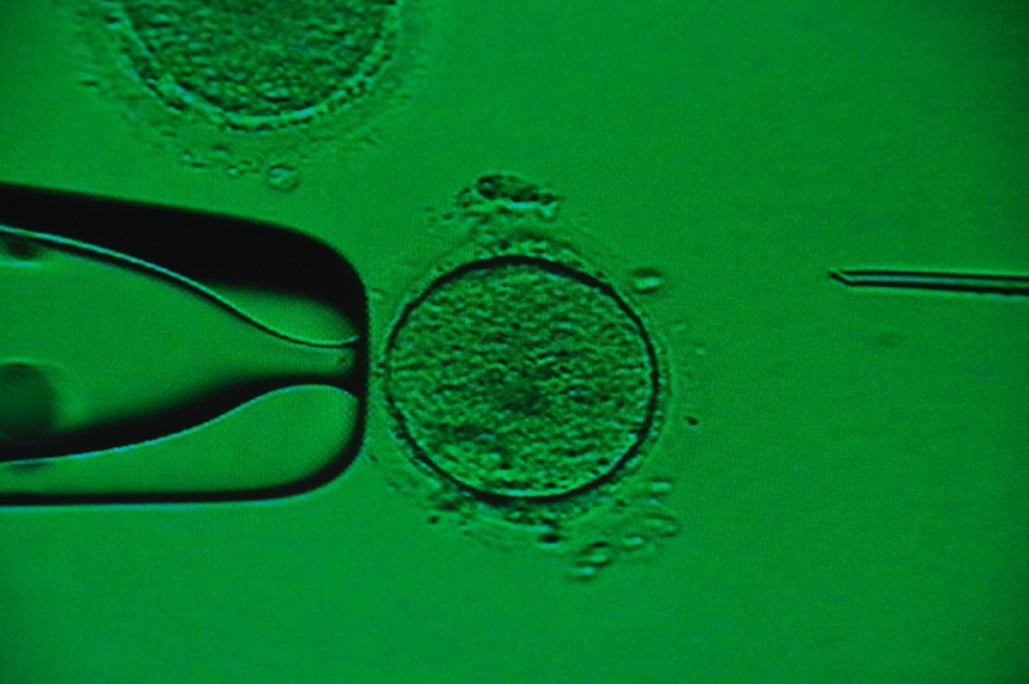
Green icsi
Magali Lara. The good breast and the bad breast.
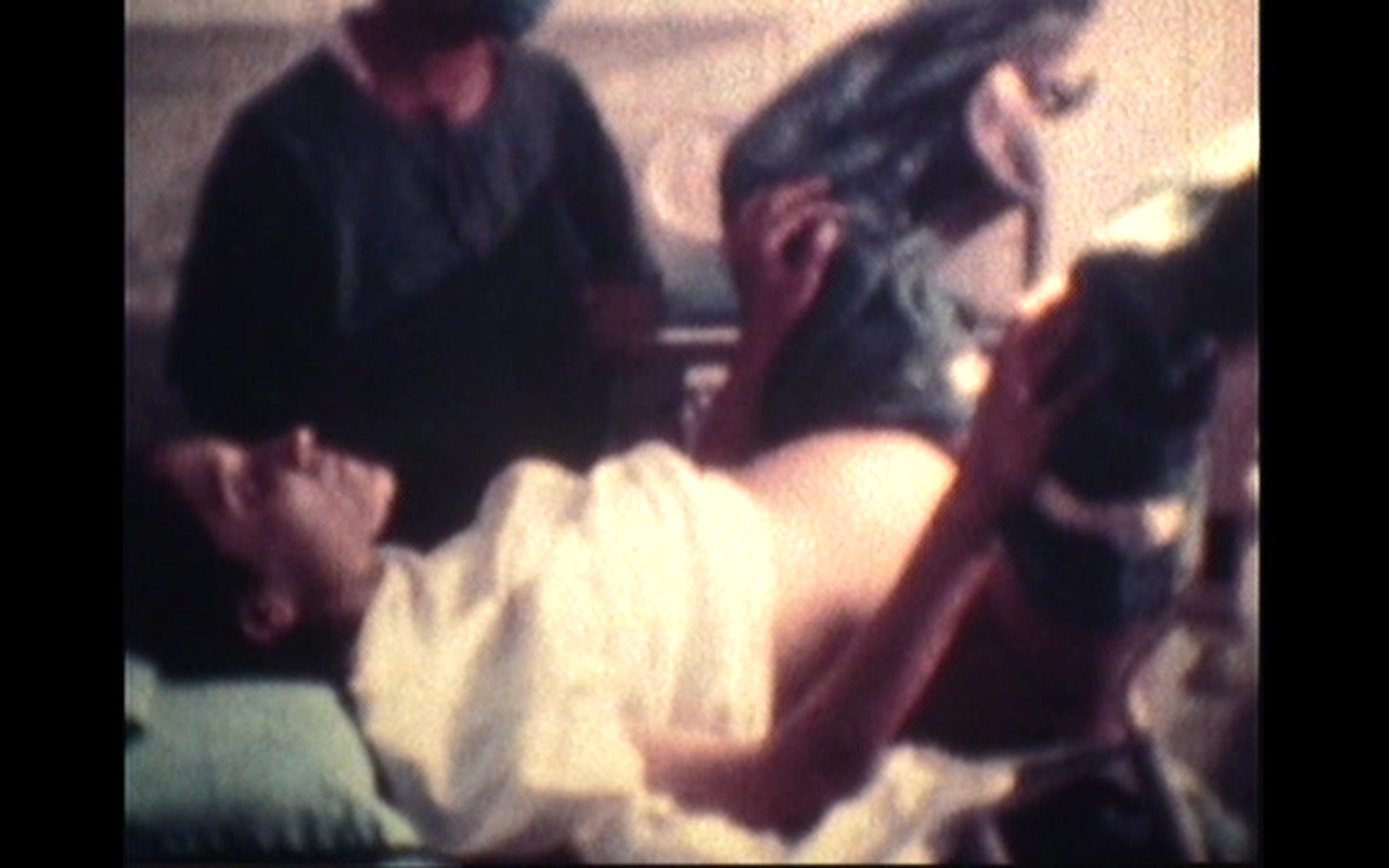
Cecilia Monroy Cuevas
MAGALI LARAMotherland: continents and ghosts
I am interested in approaching the mother-daughter relationship from the construction of identity in which love/hate, attraction/repulsion builds a complex, labyrinthine territory that can become destructive or liberating, and I would like to show works by some of the artists who have explored this link within their work processes, both visually and in their texts that have accompanied me in my own work.
CECILIA MONROY
MOTHERING IN THE IMPOSSIBLE
A photographic reflection on birth itself, childbirth and the discrepancies of contemporary motherhood in different contexts.
GABRIELA RIVERA LUCERO
Raising Crows, Monstrous Maternities
A review of Gabriela Rivera Lucero's work is shared, linked to her maternal autobiography, in which she problematises concepts such as guilt, adult-centred violence, and the relationship with corporeal residues when dedicating oneself to care. Through photography she seeks to investigate traditionally accepted patterns of upbringing that tend to show us an ideal of care that is aseptic, detached and that requires constant recognition and gratitude, and if this is not the case it turns into a monstrous motherhood.
Session 2. Through visual strategies linked to photography, performance and staging, the aim is to investigate the possibilities of constructing a critical photography that questions the canons of what the maternal should be.
PATRICIA MASSÉ ZENDEJAS
Historical and current approach to the photographic views of pregnant women in Mexico, as well as some antecedents and intertwining with their representation in Western culture, since the Renaissance.
SVEA JOSEPHY
Confinement
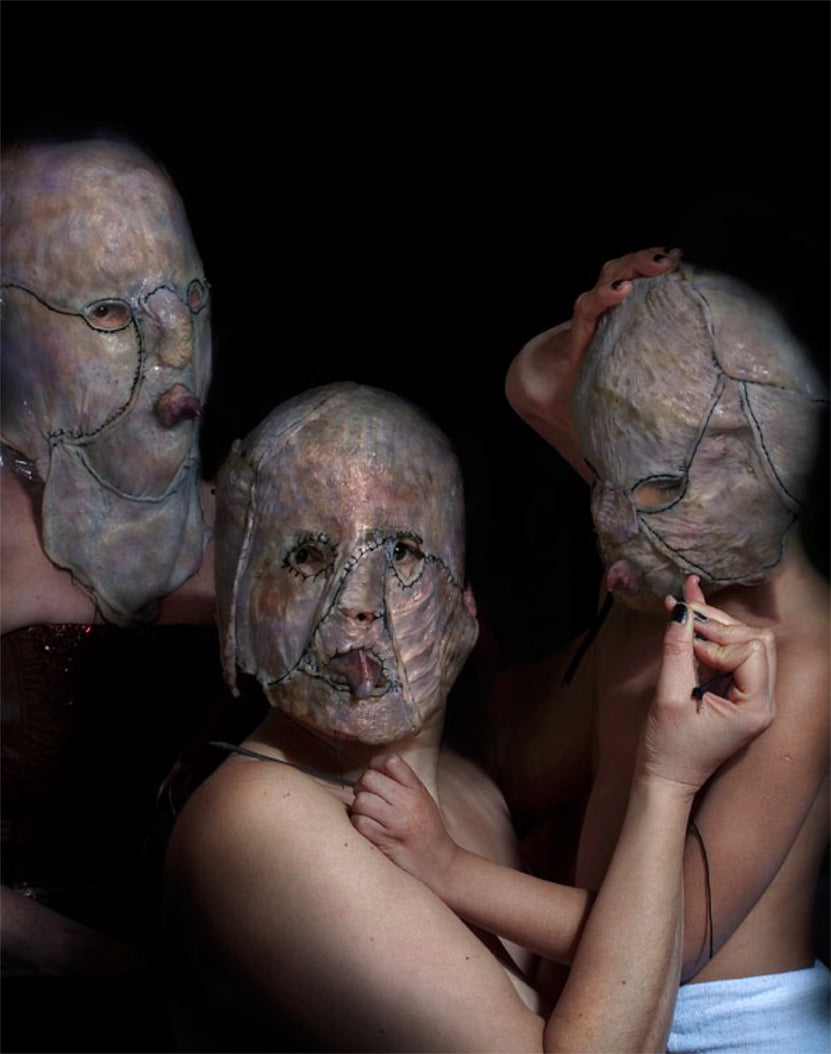
Gabriela Rivera Lucero
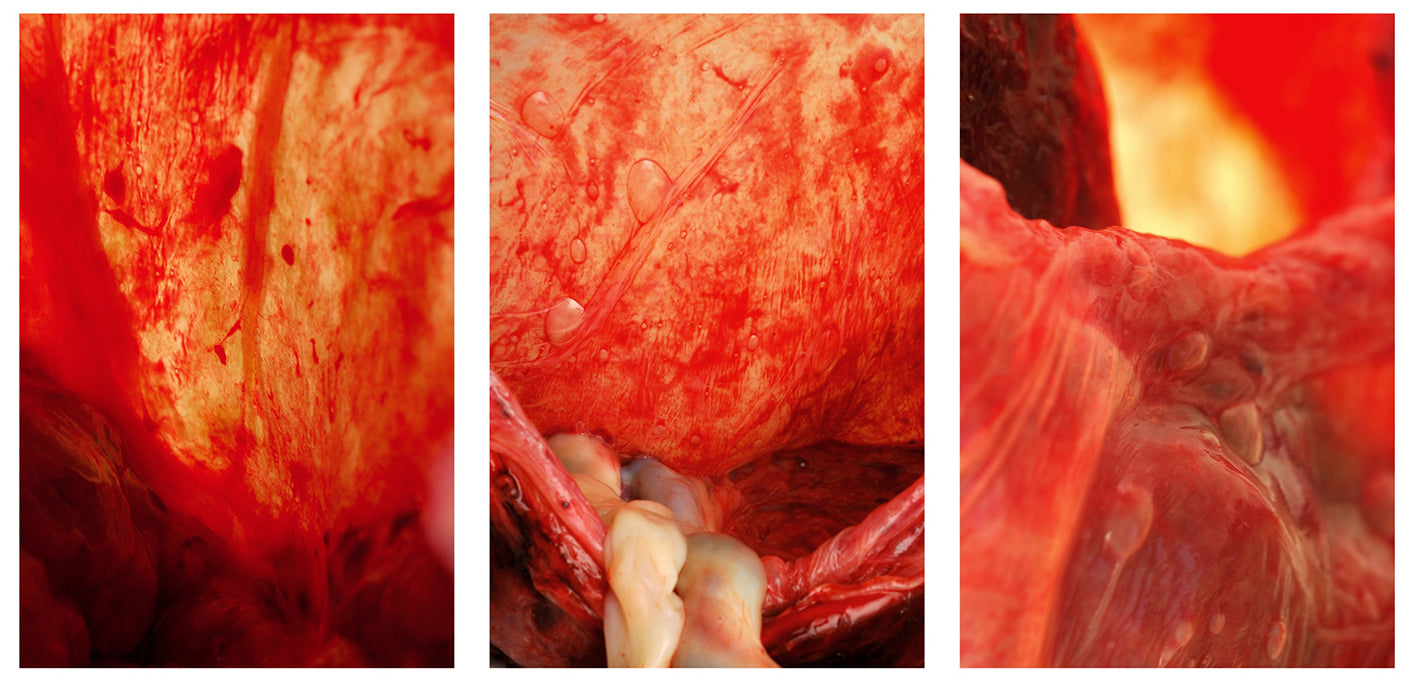
Confinement, Svea Josephy
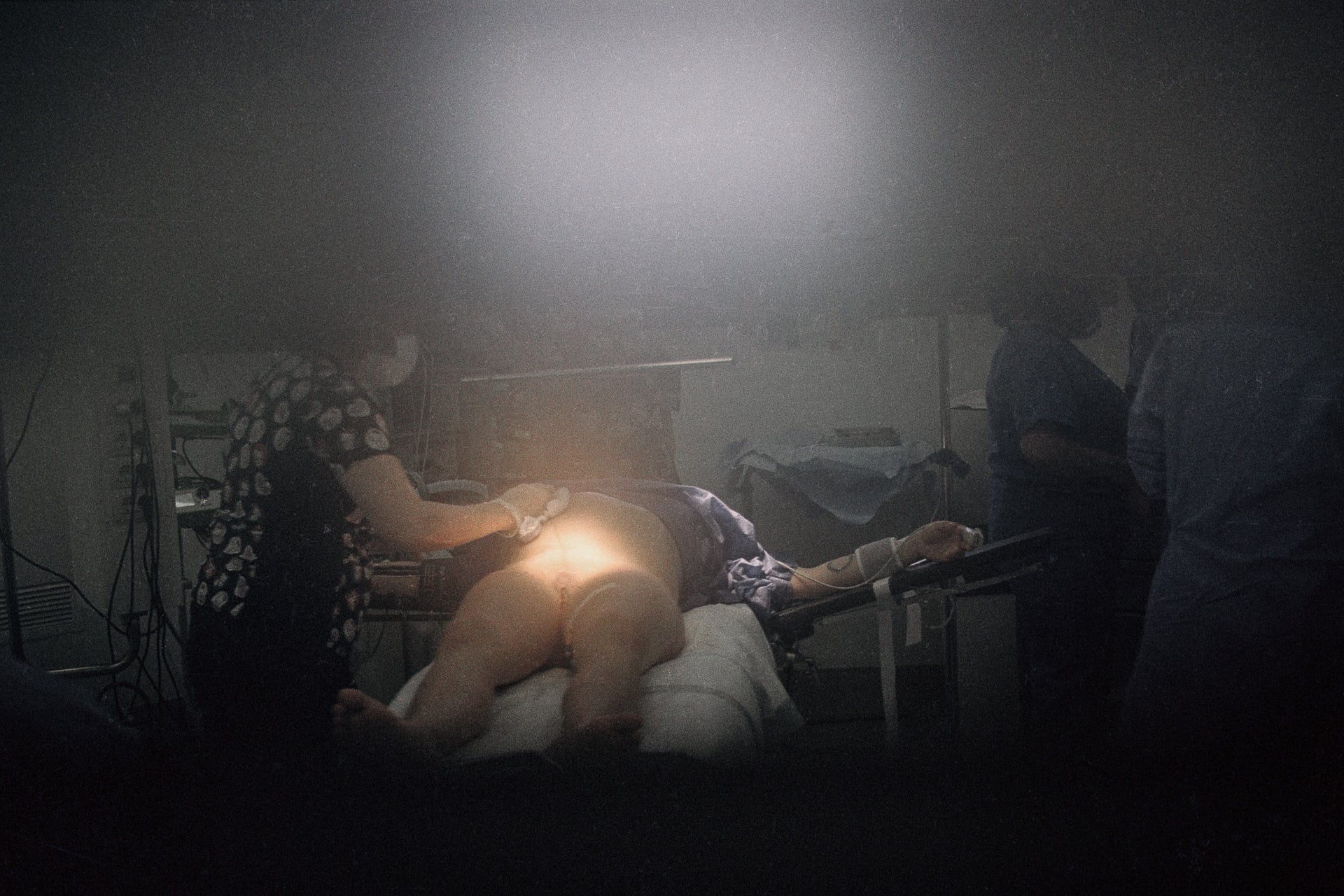
Paula López Droguett
PAULA LÓPEZ DROGUETT
Session 1: Motherhood and Systemic Violence
Presentation of the work of Paula López-Droguett, Chilean visual artist and photographer. The virtual exhibition deals with works in the context of motherhood and a critical view of domestic violence. The work deals with topics related to the maternal. The installation as visuality and the body as discourse.
Session 2: Feminism in contemporary Latin AmericanphotographyVisual strategies in contemporary Latin American photography from a feminist perspective. Narrative approaches for the creative process of the construction of work - discourse, constitution of political and critical work that creates a space for discussion.
PROGRAMME IN PROGRESS
Guests, programme, costs and dates coming soon. Write to enlace@hydra.lat
